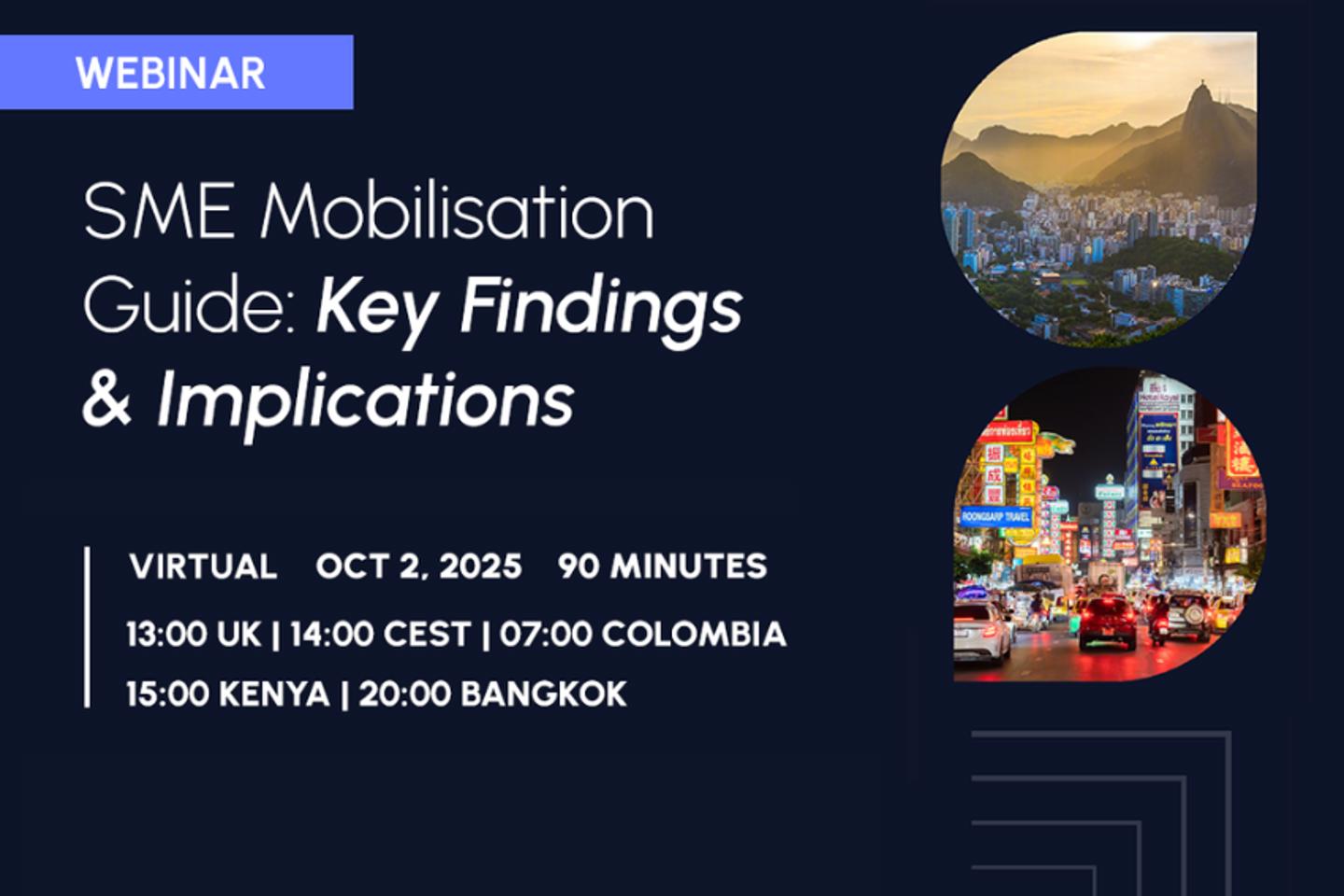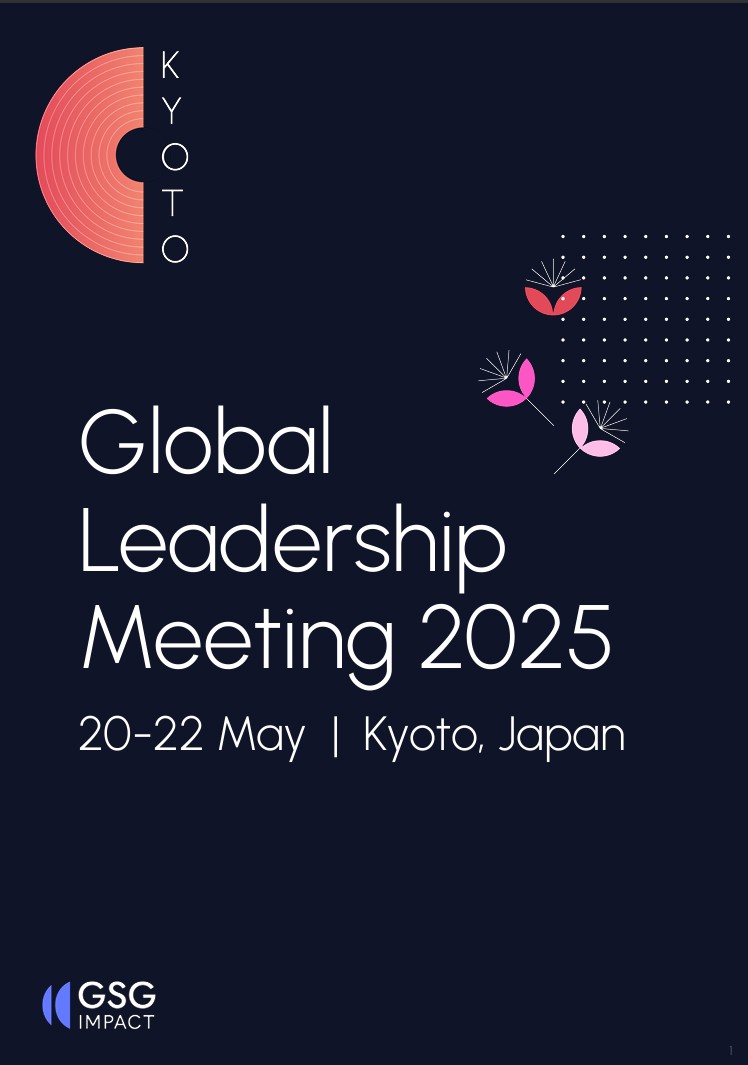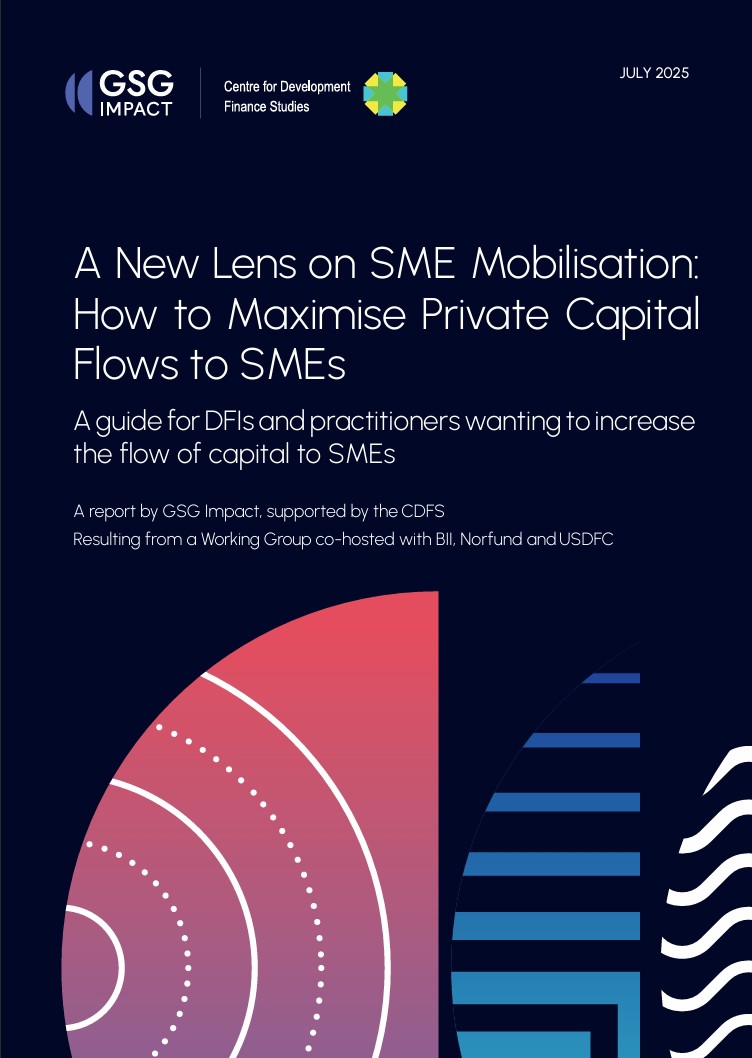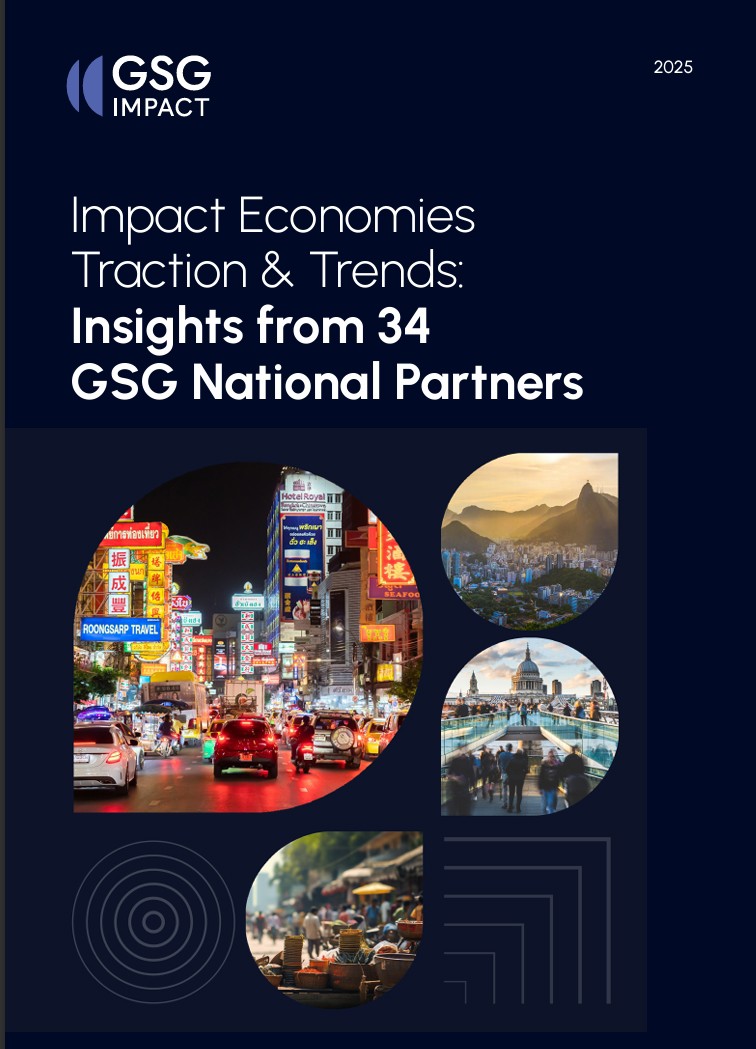
FFD4: Setting the direction of development finance for the next 10 years
The Fourth International Conference on Financing for Development (FFD4) brought world leaders together to make decisions on how to support reform of the international financial architecture, in order to address financing challenges preventing the world from achieving the Sustainable Development Goals (SDGs).
For GSG Impact, FFD4 presented a unique opportunity to engage development finance institutions (DFIs), policy makers, and other practitioners on how to drive capital towards small and medium enterprises (SMEs) in emerging markets, increase transparency around impact, and build impact economies.
Compared to the last FFD conference 10 years ago, the private sector was – to a much greater extent – both in the room and seen by all stakeholders as part of the solution, with financial institutions and businesses working alongside international and regional organisations, civil society, and UN bodies.
Building a collective voice
In advance of FFD4, we convened a wide range of global voices through a working group advocating for change in how capital flows to impact. Working across all our National Partners and several other partner organisations, we collated a collective input paper endorsed by more than 50 organisations, which we submitted to the formal UN process for FFD4 contributions.
It offers recommendations – across systemic financial reforms, blended finance innovations, and the role of local actors – to ensure a just and sustainable global economic transition, focused on three key actions:
-
support and invest in domestic initiatives;
-
expand de-risking tools;
-
foster greater impact transparency.
Convening for action
In the months leading up to the conference, we hosted several discussions with this coalition of partners to collaborate on messaging, share advocacy priorities, and keep updated on the UN’s official drafting process.
We embraced the Finance in Common Summit in South Africa as a key milestone on the way to FFD4. We collaborated with the Glasgow Financial Alliance for Net Zero (GFANZ) to curate a session within the main agenda for around 200 people, with us leading a panel on mobilising domestic capital and GFANZ leading one on mobilising international capital. We also hosted a side event with the Association of European Development Finance Institutions (EDFI), showcasing to an audience of around 90 DFIs and other development finance practitioners the messages from our input paper and the initial findings of the working group, followed by a conversation on what advocacy messages to bring into the FFD4 process.
As well as conference sessions, we spoke directly to around 25 key partners, including ministries of foreign affairs for Norway, the Netherlands, France, and the UK, and strategic partners including IDFC, EDFI, UNDESA, WEF, GFANZ, and OECD.
Tooling up governments
Based on those conversations, we provided the ministerial contacts with guidance for their negotiating teams on integrating specific edits into the next version of the FFD4 outcomes document. Our Zambia National Partner met directly with Ambassador Chola Milambo, Permanent Representative of Zambia to the United Nations, who was leading FFD4 negotiations on behalf of African countries in the intergovernmental process that led to the final Compromiso de Sevilla outcomes document.
Achieving results
The consultative process allowed us to surface strong consensus that resonated with negotiating governments, meaning nearly all of the group’s recommendations were reflected in the first draft of the FFD4 outcomes document.
However, the first draft used general terms in many areas, where we wanted to see specific text, so we pushed for further refinement on core issues in the final draft.
Three key outcomes
-
The final version of the Compromiso de Sevilla / Seville Commitment incorporates, in part or in full, all of our second wave of recommendations. It shows a positive direction of travel to all players in the development finance space – and the involvement of GSG Impact and our partners means impact approaches are woven throughout.
-
At the International Business Forum, organised in parallel by the FFD4 Business Steering Committee, a call to action to unlock private capital for sustainable development outlined five priority areas for impact investment that align closely with our work.
-
We launched our guide for DFIs and other development finance practitioners, A New Lens on SME Mobilisation: How to Maximise Private Capital Flows to SMEs. It explores secondary mobilisation: banks and funds, as a result of DFI investments, going on to use their own capital to expand SME lending/help investee companies raise follow-on funding. The guide takes DFIs through the steps to understand secondary mobilisation, track it, and develop a deliberate approach to harness it.
Reflections
Ultimately our work towards FFD4 not only secured important references in the Compromiso de Sevilla to impact economy facets including SME finance, catalytic capital, domestic private capital, de-risking instruments, impact investment wholesalers, outcomes-based schemes, and sustainability disclosures, but also positioned GSG Impact and our National Partners as valuable contributors to global decision-making efforts, bringing inspiring solutions that can be scaled and replicated.






